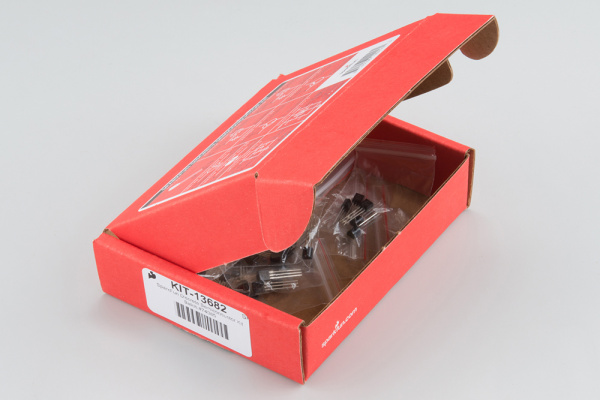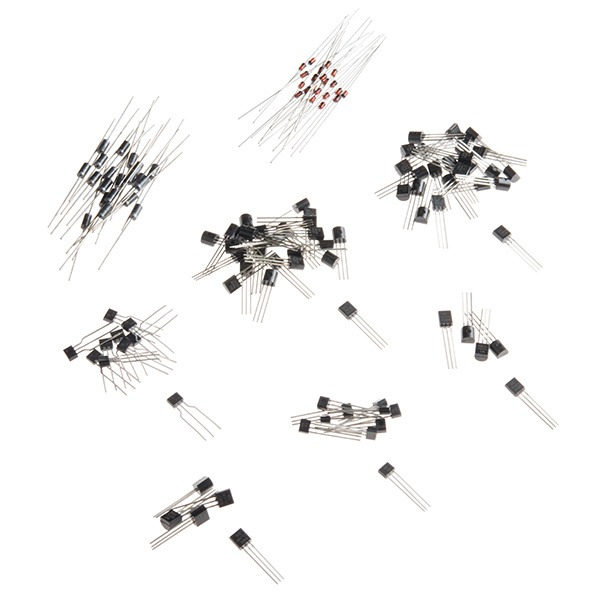Discrete Semiconductor Kit Identification Guide
Overview
Let's start with a couple of definitions.
1. Separate; distinct; individual; non-continuous.
2. That can be perceived individually and not as connected to, or part of something else.
3. (electrical engineering) Having separate electronic components, such as individual resistors and inductors — the opposite of integrated circuitry.
1. Respectful of privacy or secrecy; quiet; diplomatic.
2. Not drawing attention, anger or challenge; inconspicuous.
Usage notes
Courtesy Wiktionary.org
Background
If you do anything with electronics, you're probably already using transistors, but you're probably using them in large, highly-integrated clusters. For example, the ATMega328P (the main chip on the RedBoard and ProMini) contains hundreds of thousands of them. They're tiny, encaplsulated in plastic, and already configured to be used as a microcontroller.
But sometimes you only need one...and if you don't have one handy, it can be inconvenient to have to go and order a single transistor.
The Discrete Semiconductor Kit addresses your basic discrete semiconduictor needs. It's got PNP and NPN bipolar transistors, N-channel and P-channel MOSFETs, diodes, adjustable voltage references, and adjustable voltage regulators.
This guide will walk you through identifying each of these components.
Background Materials
- Our Transistor Tutorial covers the basics of bipolar junction transistors.
- There are According To Pete episodes in which he discusses:
- All of the components in this kit are polarized.

